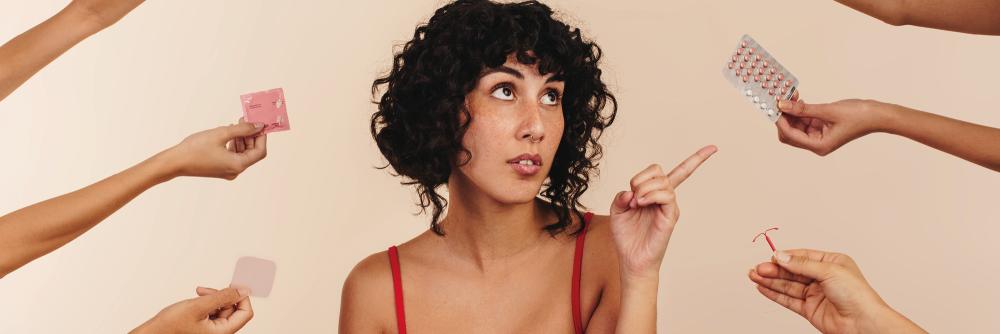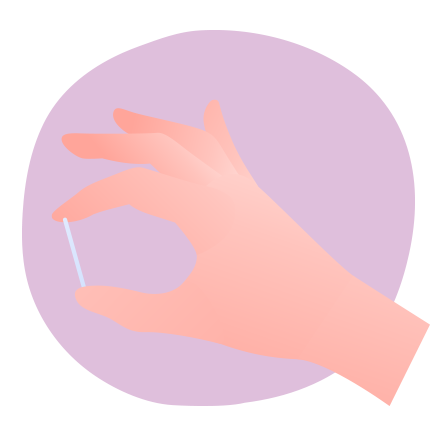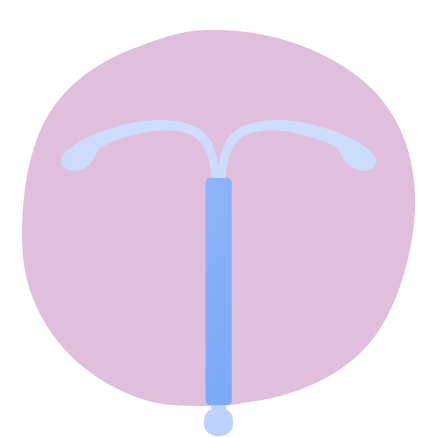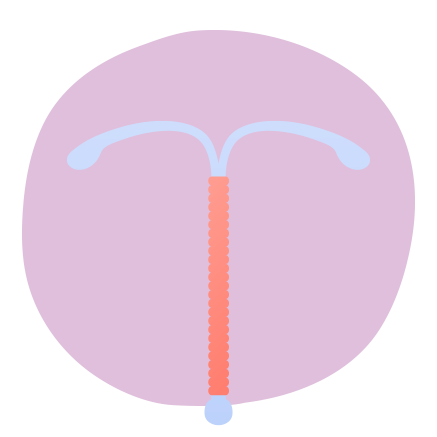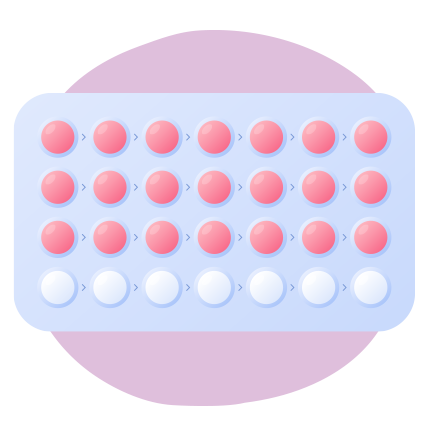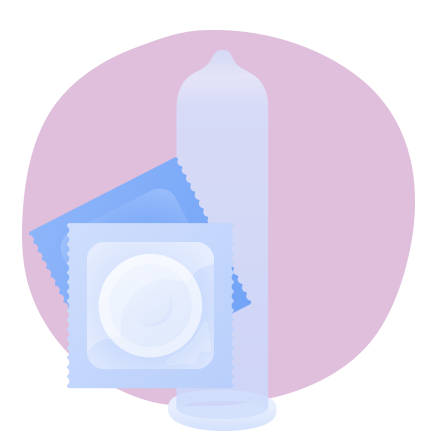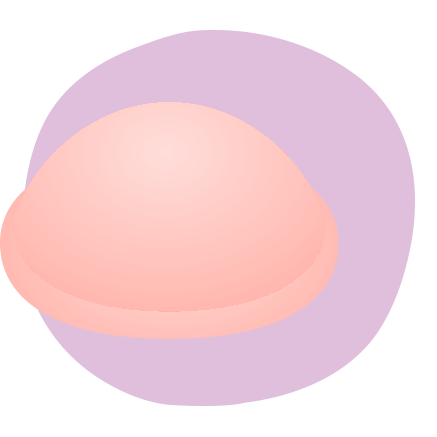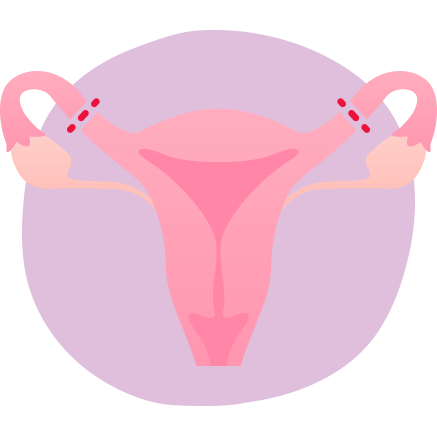Contraception can help you prevent pregnancy. It is good to review the contraception you use regularly. Different kinds of contraceptive work better for different stages of your life.
Your GP or the Family Planning doctors can help you work out which method could work best for you.
Long Acting Reversible Contraception (LARC)
Long Acting Reversible Contraception (LARC) are inserted into your body by a specially trained doctor or nurse. They can remain in your body for years. They are the most effective reversible methods of contraception available. In Tasmania there is financial help available for eligible people to access LARCs.
Contraceptive Implant
The contraceptive implant is a small plastic rod placed under the skin of your upper arm.
It releases a hormone to stop your ovaries from releasing an egg each month.
You can buy it from a pharmacy with a prescription from a doctor.
It is safe to use while breastfeeding. It can be affected by other medications.
Read more here.
Hormonal Intrauterine Device (IUD)
A hormonal IUD is a small, T-shaped, plastic device. It is inserted into your uterus by a doctor and can stay in place for up to five years.
It releases a hormone to stop your ovaries from releasing an egg each month.
You can buy it from a pharmacy with a prescription from a doctor.
It is safe to use while breastfeeding and is not affected by other medications.
It needs to be removed by a doctor.
Read more here.
Copper Intrauterine Device (IUD)
A copper IUD is a small, T-shaped device. It is inserted into your uterus by a doctor and it can stay in place for between 5 and 10 years.
It releases copper into the uterus , which prevents pregnancy.
You can buy it from a pharmacy with a prescription from a doctor.
It is safe to use while breastfeeding and is not affected by other medications.
It needs to be removed by a doctor.
Read more here.
Short Acting Contraception
Short Acting contraception options must be used regularly.
Contraceptive Injection
The contraceptive injection is given by a doctor or nurse every 3 months.
The injection contains a hormone to stop your ovaries from releasing an egg each month.
It is safe to use if you are breastfeeding and is not affected by other medications.
Read more here.
Oral Contraceptives (the Pill)
Oral contraceptives must be taken every day at the same time.
'The Pill' works by stopping your ovaries from releasing an egg each month.
You can buy “the Pill” from a pharmacy with a prescription from a doctor.
The pill can affect other medications.
Read more here.
Vaginal ring
The vaginal ring is a soft silicone ring that you insert into your vagina yourself (like putting in a tampon). It can remain inserted for a few weeks.
It releases hormones that stop your ovaries from releasing an egg each month and thickens the fluid in your cervix to help prevent sperm from entering your uterus.
The ring can be left in place for three weeks.
You can buy it from a pharmacy with a prescription from a doctor.
It is not affected by other medications.
Read more here.
Barrier Contraception
Barrier methods stop sperm from entering the cervix, which prevents them being able to fertilise an egg.
Condoms
The condom is a rubber sheath, which is rolled onto an erect penis.
It stops sperm from entering the vagina.
Condoms can be purchased without a prescription and are widely available from supermarkets and pharmacies. Some clinics, youth services and community health services provide them for free.
Condoms are single use only and should be put in a bin after use.
Condoms are also the only protection against sexually transmitted diseases (STIs).
Diaphragm
A diaphragm is a flexible cup made of silicone. You insert the diaphragm into your vagina.
The diaphragm and spermicide gel prevent sperm from passing into the uterus.
Diaphragms can be purchased without a prescription from some pharmacies and Family Planning clinics.
Emergency Contraception
Emergency contraception can be used after you have had unprotected sex. It is not the same as an abortion. They are not 100% effective.
Emergency Contraceptive Pill
The emergency contraceptive pill (known as the “morning after pill”) needs to be taken as soon as possible after unprotected sex.
The emergency contraceptive pill is available at most pharmacies without a prescription. If you are breastfeeding, please check with the pharmacist.
If you have unprotected sex again, you may need another dose.
Copper IUD
The Copper IUD can be used as emergency contraception if inserted within 5 days of unprotected sex.
You can buy it from a pharmacy with a prescription from a doctor.
It must be inserted by a trained doctor or nurse.
Sterilisation
Sterilisation will permanently prevent a pregnancy. It requires minor surgery and cannot be reversed easily.
Vasectomy
Vasectomy is a surgical procedure that can be done under local anaesthetic.
A vasectomy blocks the sperm from being released. They can take three months or longer to take full effect.
Vasectomies can sometimes be reversed, but not always successfully.
See your GP or a doctor at Family Planning Tasmania for an assessment and referral for the procedure.
Read more here.
Tubal Ligation
Most people call tubal ligation 'having your tubes tied’. In this procedure, clips are put on your fallopian tubes to stop sperm getting to the egg.
It can be done as day surgery under a general anaesthetic. You will need a referral from your doctor.
Tubal ligation can sometimes be reversed, but not always successfully.
Read more here.
Trans and gender diverse people and hormonal contraception
If you are trans or gender diverse, you might be taking hormones as a way of affirming your gender.
Gender affirming hormones are not effective contraceptives. If you have a uterus, you can still get pregnant even if you are taking testosterone. If you have a penis, you could make someone with a uterus pregnant.
You may want to discuss reproductive health goals with a doctor or sexual health nurse to work out what options will work best for you.
Hormonal contraceptives have not been shown to have a negative impact on gender affirming hormone levels.
Some trans men, non-binary and gender diverse people with uteruses find that some kinds of hormonal contraceptives can stop or limit how often they get their period. For some people this can be useful, especially if their period causes gender dysphoria.
More information about contraception
Family Planning Tasmania - Advice & Information - Family Planning Tasmania (fpt.org.au)
Victorian Government Better Health Channel – Contraception Choices
Marie Stopes Australia's online contraception advisor – My Best Fit
Contraception.org – Find your perfect (contraceptive) match and Learn about contraception myths
Contraception videos in community languages (Multicultural Centre for Women's Health and Family Planning Victoria):
Contraception (English) video
Contraception (Burmese) video
Contraception (Dari) video
Contraception (Farsi) video
Contraception (Hakha Chin) video
Contraception (Italian) video
Contraception (Korean) video
Contraception (Punjabi) video
Contraception (Somali) video
Contraception (Spanish) video
Contraception (Swahili) video
Contraception (Simplified Chinese) video
Contraception (Traditional Chinese) video
Contraception (Tamil) video
Contraception (Turkish) video
Contraception (Urdu) video
Contraception (Vietnamese) video
Contraception (Auslan) video (Sexual Health Victoria and Expressions Australia)
